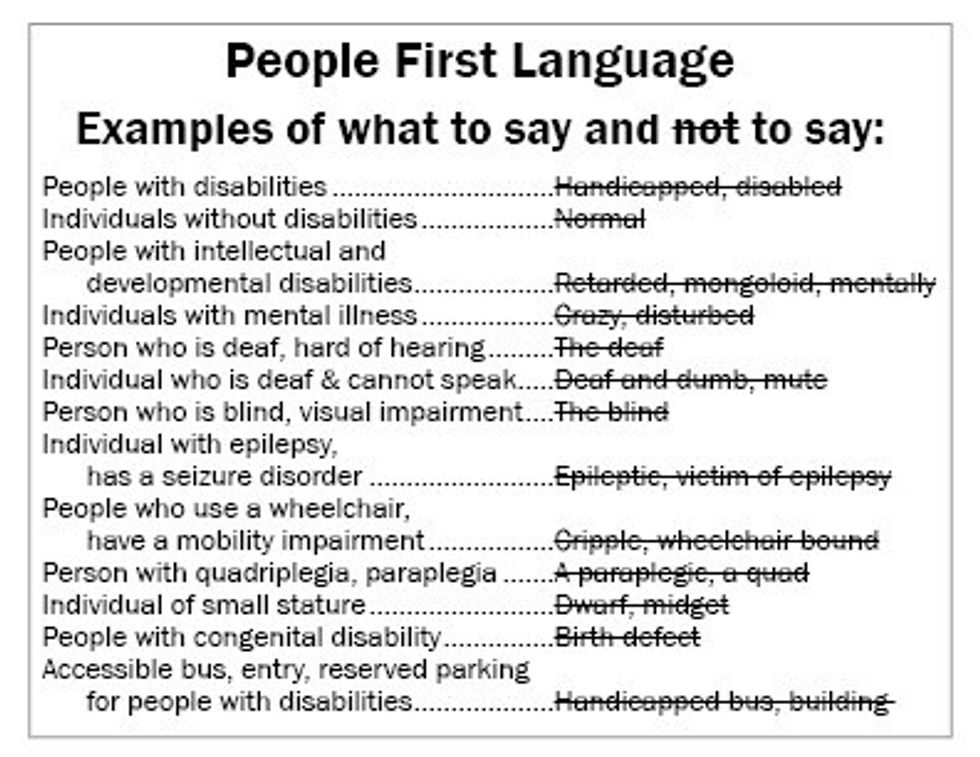"4 Suspects in Attack on Mentally Disabled Man Due in Court."
"Good Samaritans Save Wheelchair-Bound Woman."
"The Unbelievable Words of Kindness From a Bullied Special Needs Teen."
At first glance, you might find these headlines moving, inspirational, and angering. Some of the stories behind these headlines are brutal and heartbreaking. What I notice first about these headlines is the wording.
"Mentally Disabled Man," "Wheelchair-bound Woman," "Special Needs Teen." Notice how their diagnosis comes before their status as a person? The person is labeled by their disability. This is almost to say they are their disability before they are a person. It doesn't give them a chance to be thought of as equal because it makes their disability their defining character. This is the kind of language that is accepted in our society, but no one realizes how wrong it is. The media uses these terms, so the rest of society takes it to be normal. Our society needs to learn and understand the concept of People First Language.
What is People First Language? It is based off the concept that people with disabilities are actually people, not just a medical diagnosis. They are people first, and they happen to have a disability. This type of language works against the constant dehumanization of people with disabilities. This is the respectful way to talk to and about people.
Most people who don't use People First Language don't even realize they are being offensive. They don't mean to be rude, and feel that they are talking about people in a way that is normal. This way of speaking is just the way our culture knows. This is partially due to the media, but also due to old and outdated ways of thinking. So what can you do to fix this? Learn the respectful ways to speak about people.
We all know the word "retarded" is not acceptable (at least I hope we all do), but what else is unacceptable?
This means instead of saying "disabled woman," you should say "woman with a disability." Rather than being "wheelchair-bound," a person "uses a wheelchair." A "blind guy," is now a "man with a visual impairment." A person is not "autistic," they are a "person who has autism." This small change in language can change the entire tone of a conversation and make people with disabilities more accepted in our society today. Consider making a change in the way you speak; it only takes one person to start a movement.






















